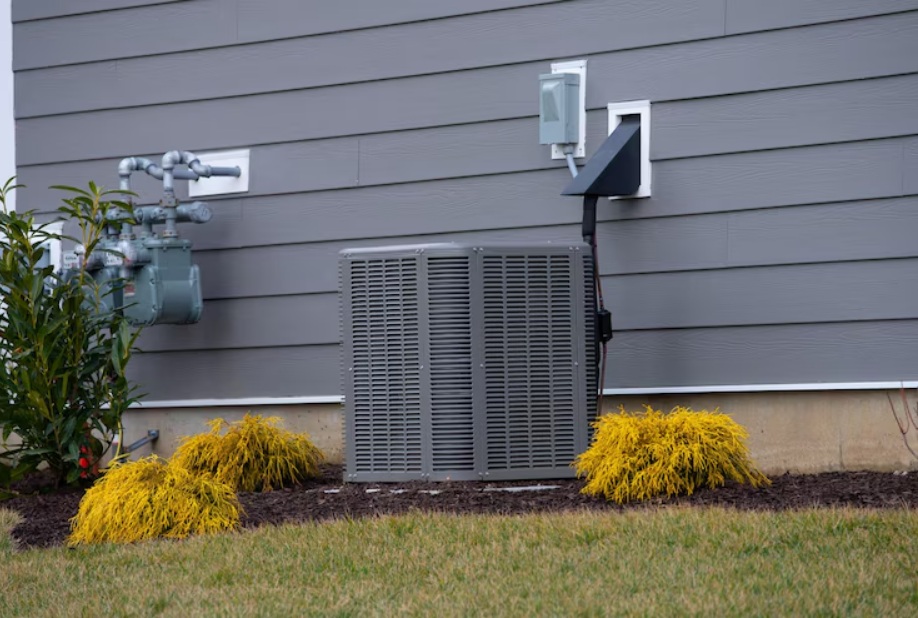Automatic transfer switches (ATS) play a pivotal role in ensuring that residential generators in Birmingham operate seamlessly during power outages. Imagine a sudden storm hits, knocking out the main power supply. Without missing a beat, your generator should kick in, thanks to the ATS. However, when these switches malfunction, they can leave households in the dark, highlighting their importance in maintaining a steady power supply. Understanding the common issues and symptoms of ATS problems can help residents address them before they turn into major inconveniences.
Symptoms of automatic transfer switch issues can vary, but they often include frequent power fluctuations, delayed switching between power sources, or a complete failure to switch over to backup power. These problems not only affect comfort but can also disrupt daily activities and even cause damage to electronic appliances. Recognizing these signs early and knowing how crucial the ATS is in the overall functioning of a generator system helps households stay prepared and minimize downtime.
Understanding the Automatic Transfer Switch
An automatic transfer switch is an essential component of a residential generator system that facilitates the transition between the primary electricity source and the backup generator. When functioning correctly, the ATS detects the loss of power from the main supply and immediately signals the generator to start, enabling a smooth transition. Once the main supply restores, the switch seamlessly transfers back to it, ensuring consistent power availability.
The ATS comprises several key components that work together to maintain uninterrupted power. These include relay mechanisms, sensors, and control circuitry. The sensors detect the electricity status from the main grid, and the relay systems then manage the power transfer while maintaining electrical safety standards. The control circuitry coordinates the timing and process of switching the power sources smoothly and efficiently.
In Birmingham, where seasonal storms may lead to electrical outages, the reliability of an automatic transfer switch could mean the difference between hours without power and a barely noticeable transition. Ensuring the ATS is well-maintained and fully operational is vital to maintaining household productivity and comfort in the face of unpredictable weather changes. As the days turn warmer entering spring, it’s an excellent time for homeowners to inspect their generator systems, including the ATS, and ensure everything is in optimal working condition.
Common Problems with Automatic Transfer Switches
Automatic transfer switches, while essential, can encounter several problems that may disrupt their operation. These issues include the failure of the switch to activate, delays in switching over, or incorrect power transfer. Such problems could occur due to various reasons, ranging from wear and tear to manufacturing defects. A switch that doesn’t activate when needed is the most prevalent problem, causing the generator to fail to take over during an outage. This condition leaves homes in Birmingham without power, potentially compromising the safety and security of the household.
Delayed switching is another common problem, where the ATS takes longer than expected to transition between power sources. This delay can lead to momentary power losses, affecting sensitive electrical appliances and causing inconvenience. Faulty components and inadequate maintenance might be the culprits behind these delays. Additionally, incorrect power transfer, which can cause electrical surges or inconsistent power flow, disrupts the normal operation of home appliances.
To tackle these problems, understanding their potential causes is key. Often, issues stem from simple factors such as outdated components or inadequate regular maintenance. Recognizing these signs early can prompt timely troubleshooting and prevent larger, costlier repairs.
Troubleshooting and Repair Solutions
When seeking to resolve automatic transfer switch issues, the process often begins with some straightforward troubleshooting steps:
1. Inspect Connections: Check all ATS connections. Loose or corroded wires can lead to poor electrical flow and cause issues.
2. Check the Control Panel: Many ATS systems have a control panel with diagnostic lights or error codes that can help identify specific problems.
3. Look for Physical Damage: Examine the switch for any signs of physical harm or damaged components.
4. Reset the System: Occasionally, simply resetting the ATS might resolve minor glitches or malfunctions.
While these steps can help homeowners identify possible issues, it’s essential to recognize when a problem is beyond a simple fix. In such cases, engaging professionals to inspect and repair the ATS is wise, as they have the expertise to handle complex issues like replacing a faulty relay or recalibrating the switch.
Preventative Maintenance Tips
Avoiding automatic transfer switch problems often boils down to consistent maintenance. Here are practical tips to ensure the longevity of ATS systems in residential generators:
1. Schedule regular inspections – Professional check-ups every six months can identify potential issues before they become significant problems.
2. Test the generator and ATS regularly – Running monthly tests helps ensure that both the generator and the switch function properly.
3. Clean and secure connections – Regularly clean terminals and ensure all electrical connections are tight to prevent corrosion and wear.
Ensuring Reliable Power with Residential Generators in Birmingham
Addressing automatic transfer switch concerns ensures residential generators function reliably, providing peace of mind to Birmingham residents. By staying on top of maintenance and being cognizant of potential problems, homeowners can minimize disruptions. Proactive care not only prolongs the life of a generator but also guarantees consistent power supply during unplanned outages. A well-functioning generator system is indispensable for maintaining safety and comfort in the home. Reaching out to expert professionals for regular maintenance and addressing repairs promptly can help ensure these systems remain a dependable resource.
Discover how investing in regular maintenance can help your residential generators in Birmingham provide a steady power supply during unexpected outages. For a quick estimate or to book a service visit, please contact us today.











